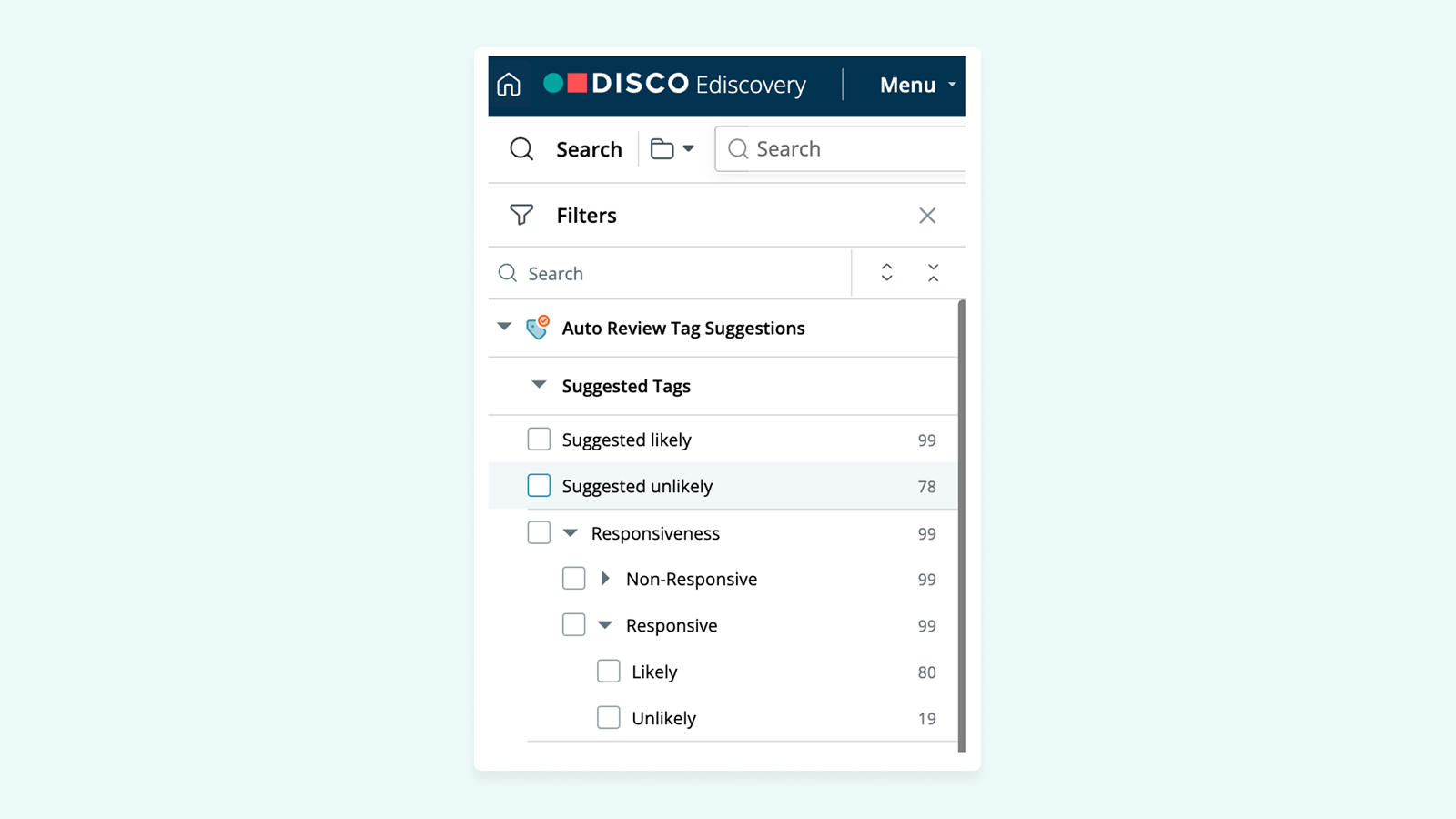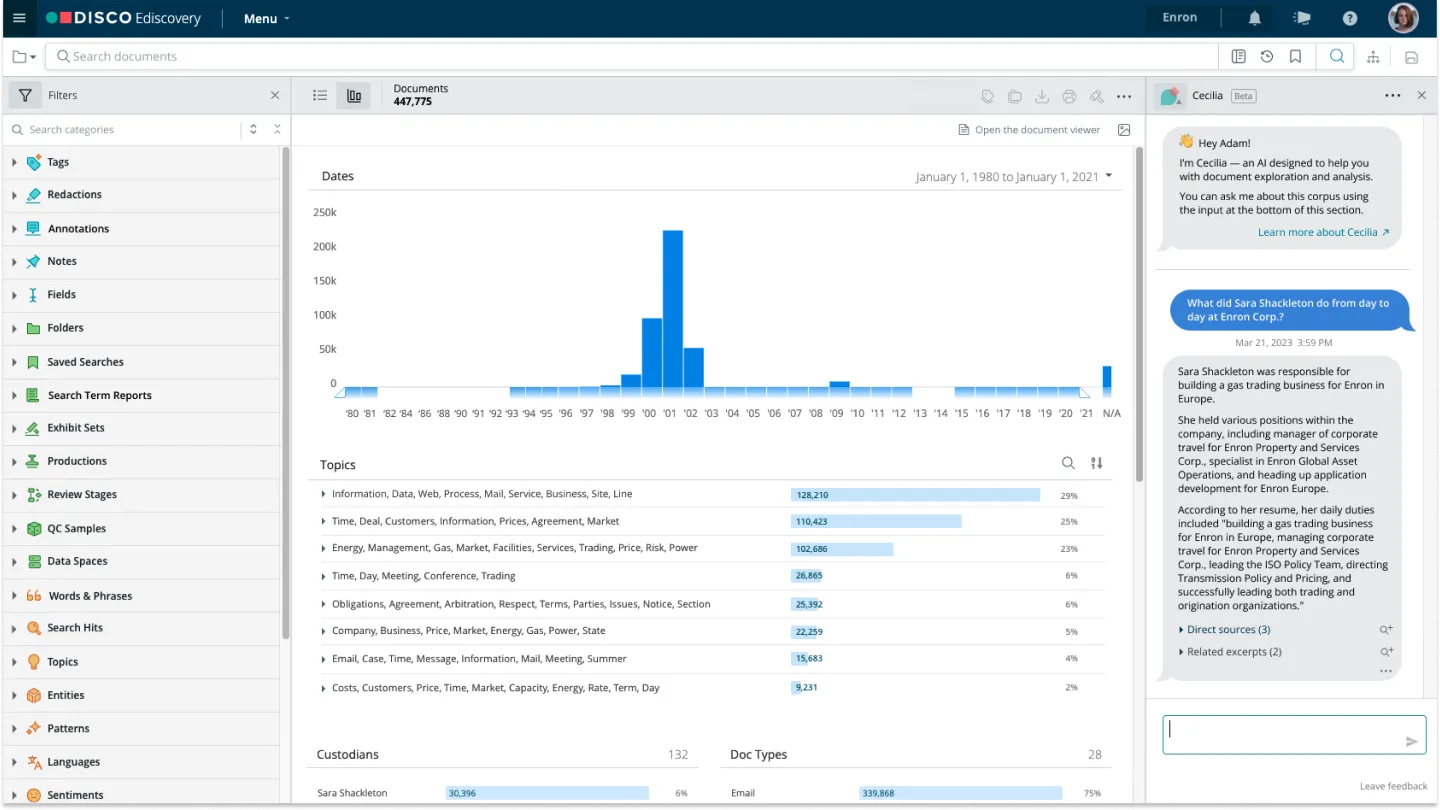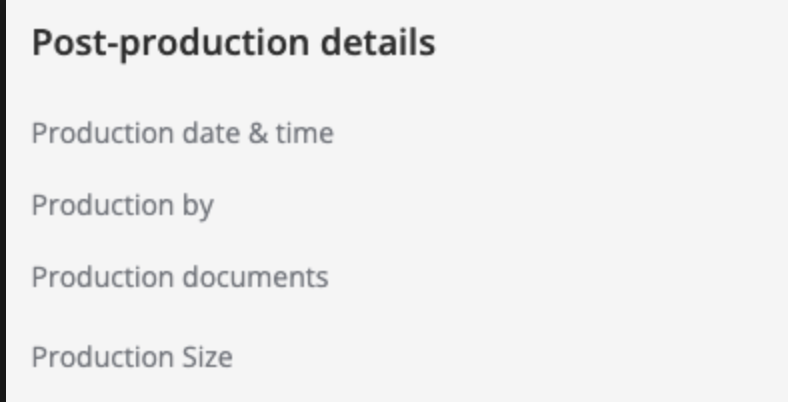⚡️ 1-Minute DISCO Download
Legal teams are increasingly embracing technology to enhance efficiency and productivity in their workflows, particularly in evidence management. The integration of legal technology into everyday practice can transform the landscape of litigation, ensuring that accurate, up-to-date evidence is always accessible to your team.
However, introducing a new software into an established workflow can be met with resistance and requires effective change management. Encouraging team members to change involves selecting user-friendly software, providing adequate training, and ensuring continuous support during the transition phase.
DISCOs deposition transcript management software, Case Builder’s was designed to allow case teams to easily build timelines and manage their deposition testimony while being easy to adopt. After watching legal teams of all sizes use Case Builder, here are the best practices we’ve seen to boost productivity, increase alignment, and lead to better case strategy.
Facilitate Collaboration
The first step towards efficient evidence management is adopting a collaborative workflow. Case Builder facilitates case team collaboration, allowing teams to work together in a single application and interface and easily export depositions and annotations.
It's critical for legal teams to be able to share insights about evidence and deposition narratives to aid in the development of case strategy and ensure all team members are informed about ongoing progress.
Meet Your Team Where They Are
One of the most effective strategies for boosting adoption rates of new technology in the legal field is to meet people where they are. Every team member may not be equally comfortable using new software. In such cases, an associate can send out a weekly digest of issues in depositions—a rollup of the entire team's work. This minimal time investment ensures that everyone is on the same page and case strategy development remains steady.
Keep Clients Informed
Keeping clients updated about the identification and analysis of key evidence and developing issues in the case is a critical aspect of legal service. Easy-to-use case chronology software that allows case teams to quickly reference the most current case information can help them stay organized, track deadlines, and communicate current case thinking effectively with clients. Case Builder, along with the use of timelines, makes it easy for teams to accomplish this. By organizing key facts and offering a bird's eye view of the case, lawyers can provide just enough information to clients without overwhelming them.

Streamline Evidence Management
With increasing volumes of electronically stored information (ESI) and public evidence, managing and keeping track of all pieces of evidence becomes a daunting task. Moreover, the quest for the best version of evidence — be it the latest email or the version of a marked-up contract that best supports your case — adds another layer of complexity.
The solution lies in centralized storage. As you build your timeline, identifying the best version of each piece of evidence and saving it in one centralized location ensures you don’t have to start from scratch before trial or motion practice. The most recent and most helpful versions of evidence are always at your fingertips, ready to be deployed as required.
Harnessing legal technology for evidence management and building case narratives not only optimizes the workflow but also enhances collaboration within the team. Platforms like Case Builder aid in this transformation, ensuring every team member has access to accurate, up-to-date evidence while also keeping clients informed. Remember, change management is a journey, not a destination. The journey towards efficient ediscovery and case management is paved with continuous learning, adaptation, and technological adoption.
For more information about Case Builder and its capabilities, visit our dedicated hub for more tailored support.






%20(1).jpeg)








.png)